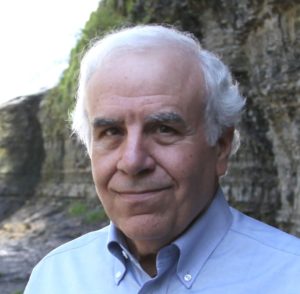Fracking for Shale Gas/Oil 2008-2017: What Do We Know Now That We Did Not Know Then?
Tony Ingraffea
Tuesday, September 12, 2017 at 2:00 P.M. in the Pearl Young Theater
(video within Langley firewall only)
Abstract
What is “fracking”? Is it really a new rock cracking technology that has put the U.S. on the path to energy independence and energy security? Or, is fracking just one of many keys that unlocked shale stores of hydrocarbons? If fracking in shale is a technological gamble, what did we know when we first rolled the dice, and what do we know now about the risks to water, air, and climate change? I spent a professional lifetime studying how things crack: sometimes cracking is undesirable, sometimes it is not. My objective in this presentation is to help you to decide for whom fracking shale is desirable, and for whom it is not.
Speaker

Dr. Ingraffea is the Dwight C. Baum Professor of Engineering Emeritus and a Weiss Presidential Teaching Fellow at Cornell University where he has been since 1977. He holds a B.S. in Aerospace Engineering from the University of Notre Dame, an M.S. in Civil Engineering from Polytechnic Institute of New York, and a Ph.D. in Civil Engineering from the University of Colorado. Dr. Ingraffea’s research concentrates on computer simulation and physical testing of complex fracturing processes in metals, ceramics, and geomaterials.. He has authored with his students and research associates over 250 papers in these areas. Professor Ingraffea was a member of the first group of Presidential Young Investigators named by the National Science Foundation in 1984. For his research achievements in hydraulic fracturing he won the International Association for Computer Methods and Advances in Geomechanics “1994 Significant Paper Award”, and he has twice won the National Research Council/U.S. National Committee for Rock Mechanics Award for Research in Rock Mechanics (1978, 1991). He became Co-Editor-in-Chief of Engineering Fracture Mechanics in 2005. In 2006, he won ASTM’s George Irwin Medal for outstanding research in fracture mechanics. For his public education efforts on shale gas and oil, TIME named him one of its “People Who Mattered” in 2011. He is a co-author of recent papers on methane emissions (2011, 2012, 2014, 2016), wellbore integrity in Pennsylvania (2014), and on conversion of New York (2012) and California (2014) to wind/sun/water power for all energy uses in the next few decades.